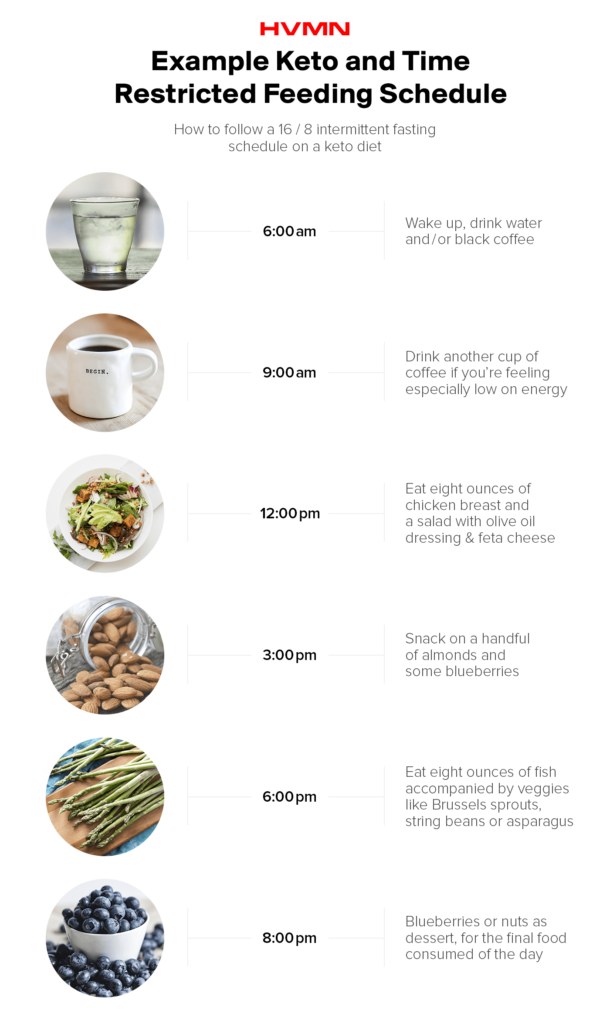In “Video By Dr. Boz: Improving Health Through Ketones,” Dr. Annette Bosworth presents a critical analysis of the health impacts caused by excessive iron storage in the body, particularly among individuals over 50. The video emphasizes the often unseen dangers of elevated ferritin levels and their implications for cardiovascular health, including risk factors that may lead to serious conditions without noticeable symptoms.
Throughout the presentation, you will learn about the significance of ferritin, C-reactive protein, and homocysteine as essential markers for assessing your overall metabolic health. Dr. Boz shares insights from her experiences with patients, highlighting how a comprehensive understanding of these indicators can lead to effective strategies for reversing potential health issues and improving well-being through lifestyle changes, including dietary adjustments.

The Role of Ketones in Health
Understanding Ketones: What They Are
Ketones are organic compounds that your body produces when it breaks down fats. They serve as an alternative energy source for your body, particularly when glucose, the primary source of energy, is in short supply. Typically, your body relies on glucose from carbohydrates for energy. However, during periods of fasting, prolonged exercise, or strict carbohydrate restriction—as seen in a ketogenic diet—your liver converts fatty acids into ketones. This metabolic state, known as ketosis, facilitates a shift in your body’s energy utilization, allowing for optimal functioning even in the absence of glucose.
The Biochemical Pathway of Ketone Production
The process of ketone production begins with the mobilization of fatty acids from adipose (fat) tissue. As these fatty acids are released into the bloodstream, they are transported to the liver, where they undergo beta-oxidation. This process breaks fatty acids down into acetyl-CoA, a crucial molecule in energy metabolism. Subsequently, when the concentration of acetyl-CoA exceeds that of oxaloacetate—a molecule involved in the Krebs cycle—the excess acetyl-CoA is converted into ketone bodies: acetoacetate, beta-hydroxybutyrate, and acetone. These ketones then enter the bloodstream and can be utilized by various tissues, including the brain, muscles, and heart, as fuel.
How Ketones Differ from Glucose
While both ketones and glucose serve as fuel sources, they differ significantly in their metabolic pathways and health implications. Glucose prompts a rapid insulin response, which regulates blood sugar levels. Conversely, the presence of ketones generally leads to reduced insulin requirements, resulting in more stable blood sugar levels. Furthermore, ketones provide a more efficient energy source for the brain, often resulting in enhanced cognitive function without the crashes associated with glucose spikes and dips. These distinct metabolic pathways illustrate the potential benefits of ketones, particularly for those seeking to optimize their health.
Benefits of Using Ketones
Weight Loss and Body Composition Improvement
One of the most widely recognized benefits of utilizing ketones is weight loss. During ketosis, your body shifts from burning glucose to burning fat, resulting in a more efficient fat loss process. As you adopt a ketogenic lifestyle, you may experience a decrease in appetite, primarily due to ketones’ appetite-suppressing effects. This can lead to lower caloric intake without the sense of deprivation that often accompanies traditional dieting. Additionally, increased fat oxidation helps improve body composition, as stored fat is utilized more effectively for energy.
Enhanced Mental Clarity and Focus
The brain is a significant consumer of energy, and it can utilize both glucose and ketones. Many individuals report experiencing enhanced mental clarity and focus while in ketosis. This is attributed to the fact that ketones can provide a more stable energy source, reducing the likelihood of energy crashes associated with sugar consumption. Moreover, some research suggests that ketones may also possess neuroprotective properties, contributing to increased cognitive function and potentially lowering the risk of neurodegenerative diseases.
Potential Therapeutic Benefits for Chronic Conditions
Emerging evidence suggests that ketones may have therapeutic benefits for managing various chronic conditions, such as type 2 diabetes, epilepsy, and even certain forms of cancer. For individuals with diabetes, adhering to a ketogenic diet can improve insulin sensitivity and lower blood sugar levels. In cases of epilepsy, ketogenic diets have been used as an effective treatment strategy, particularly for drug-resistant seizures. Likewise, research is exploring the role of ketones in targeting cancer cell metabolism, potentially offering adjunctive therapy alongside traditional cancer treatments.
Dr. Boz’s Approach to Health Improvement
Philosophy Behind ‘One Ketone at a Time’
Dr. Annette Bosworth, known as Dr. Boz, promotes the philosophy of ‘One Ketone at a Time’ as a manageable and sustainable approach to health improvement. This concept underscores the significance of gradual lifestyle changes rather than overnight transformations, making it easier for individuals to adopt and maintain a ketogenic lifestyle. By focusing on small, achievable goalsrelated to ketone production and dietary changes, you can cultivate a healthier relationship with food and your overall health.
Key Principles of Dr. Boz’s Health Strategy
Dr. Boz’s health strategy is grounded in several key principles aimed at promoting long-term wellness. First, she emphasizes the importance of education, empowering you to understand the science behind ketones and their benefits. Second, she encourages personal accountability, urging you to track your progress and adapt your approach as needed. Lastly, her strategy fosters community engagement, offering support and encouragement from others on similar health journeys. These principles create a holistic framework for health improvement, ensuring you feel guided and supported throughout your transformation.
Personal Stories and Testimonials from Followers
Many individuals who have adopted Dr. Boz’s approach share compelling testimonials about their health transformations. From those who have experienced significant weight loss to individuals who have successfully managed chronic conditions, personal stories illustrate the benefits of implementing a ketogenic lifestyle. These narratives not only inspire resilience but also affirm the effectiveness of Dr. Boz’s methodology. As you read these testimonials, you may find motivation and support in your own health journey.

Getting Started with Ketosis
Initial Steps to Enter Ketosis
Entering ketosis requires a deliberate shift in diet and lifestyle. To initiate this metabolic state, consider the following initial steps: First, reduce your intake of carbohydrates, aiming for fewer than 20-50 grams per day. This reduction will help deplete glycogen stores, prompting your body to utilize fats for energy. Second, increase your fat intake, focusing on healthy sources such as avocados, nuts, seeds, and olive oil. These fats will provide the necessary fuel for your body during the transition. Lastly, increase your protein intake moderately to preserve lean muscle mass while following a ketogenic diet.
Essential Foods for a Ketogenic Diet
When transitioning to a ketogenic diet, it’s important to prioritize foods that support ketosis. Some essential foods include:
- Healthy Fats: Avocados, olive oil, coconut oil, and fatty fish like salmon are great options.
- Low-Carbohydrate Vegetables: Leafy greens, cauliflower, zucchini, and broccoli offer essential nutrients with minimal carbohydrates.
- Protein Sources: Fish, poultry, eggs, and certain dairy products provide the protein necessary for muscle maintenance.
- Nuts and Seeds: Almonds, walnuts, chia seeds, and flaxseeds are excellent for a healthy fat profile.
By incorporating these foods into your diet, you can better adhere to your ketogenic lifestyle and support your body’s transition into ketosis.
Tools and Resources for Monitoring Ketones
To effectively navigate your journey into ketosis, consider using tools and resources to monitor your ketone levels. Various methods include:
- Ketone Meters: Blood ketone meters provide accurate measurements of acetoacetate levels in your blood.
- Breath Analyzers: These devices measure acetone concentration in your breath, offering a non-invasive option for monitoring ketone production.
- Urine Strips: While less precise than blood testing, urine strips can provide a quick assessment of ketone levels.
- Mobile Apps: Several applications can help track your food intake, ketone levels, and overall progress.
By utilizing these tools, you can assess your state of ketosis and make informed dietary adjustments.
Common Challenges and Solutions
Dealing with the Keto Flu
As you transition into ketosis, you may encounter a phenomenon known as the “keto flu.” This temporary condition can include symptoms such as fatigue, headaches, irritability, and nausea. The keto flu occurs as your body adapts to using ketones for energy. To mitigate these symptoms, focus on staying well-hydrated, increasing your electrolyte intake, and gradually transitioning into your ketogenic diet. By acknowledging this adjustment phase, you can better prepare yourself for long-term success.
Monitoring and Adjusting Macronutrient Intake
One essential aspect of maintaining a ketogenic lifestyle involves monitoring your macronutrient intake—specifically, carbohydrates, fats, and proteins. You should regularly assess your dietary composition to ensure you remain within the recommended macronutrient ratio, typically 70-75% fats, 20-25% protein, and under 5-10% carbohydrates. Adjustments may be necessary based on your individual needs and goals. Staying attentive to your macronutrient breakdown will help you adhere to a ketogenic regimen and maintain optimal ketone production.
Long-Term Sustainability of the Ketogenic Lifestyle
Sustaining a ketogenic lifestyle can be challenging in the long term. To enhance sustainability, consider integrating some flexibility into your approach. You might allow occasional higher-carb days or a targeted keto approach to accommodate social situations or personal preferences. Additionally, focusing on a varied and nutrient-dense food selection can prevent feelings of deprivation. Establishing a support system—whether through online platforms or local meet-ups—can further enhance motivation and accountability on your journey.
Dr. Boz’s Online Resources
Overview of Available Online Courses
Dr. Boz offers several online courses that provide comprehensive guidance on integrating ketones into your health routine. These courses cover topics ranging from the basics of ketosis to advanced strategies for optimizing your health. Each course is designed to empower you with knowledge and practical tools to enhance your understanding of ketones, solidifying your pathway to improved health.
Free Resources and Downloads
In addition to paid courses, Dr. Boz provides an array of free resources and downloadable materials. These resources may include meal plans, informational guides, and tips for successfully navigating a ketogenic lifestyle. Utilizing these resources can help you make informed dietary choices while simplifying your transition into ketosis.
Links to Community Support and Engagement
One of the key aspects of Dr. Boz’s approach is fostering community support and engagement. Various platforms, including social media groups and online forums, allow you to connect with like-minded individuals embarking on similar health journeys. These spaces provide a sense of belonging, encouragement, and valuable insights as you navigate your ketogenic lifestyle.
Books by Dr. Boz
Overview of ‘ANYWAY YOU CAN’
Dr. Boz’s book, ‘ANYWAY YOU CAN,’ serves as an excellent beginner’s guide to understanding ketones and how they can transform your health. This book delves into the essential principles of ketosis, offering practical strategies for incorporating a ketogenic lifestyle into your daily routine. Through relatable anecdotes and accessible language, Dr. Boz clarifies complex concepts, making them understandable for readers seeking a healthier lifestyle.
Insights from ‘KetoCONTINUUM’
In her book ‘KetoCONTINUUM,’ Dr. Boz provides insights into maintaining a consistently ketogenic lifestyle. This book offers advanced strategies for individuals who have successfully transitioned into ketosis but seek to optimize their health further. Readers will explore topics such as meal planning, troubleshooting common obstacles, and understanding the science behind the ketogenic diet.
How to Use These Books for Personal Growth
Utilizing these books can enhance your understanding of ketones and foster personal growth throughout your health journey. As you read, you can implement actionable strategies and glean inspiration from Dr. Boz’s personal anecdotes and those of others. Whether you’re a novice or seeking to refine your existing approach to keto, these books provide valuable guidance for long-term success.
Supplementation and Ketogenic Diet
Introduction to MCT Oil and Its Benefits
Medium-chain triglyceride (MCT) oil has gained traction in the ketogenic community due to its unique properties. MCTs are rapidly absorbed and converted into energy, making them an excellent addition to a ketogenic diet. Incorporating MCT oil can enhance ketone production, providing an immediate energy source for both the brain and body. You may find that adding MCT oil to your smoothies or coffee may help you transition into ketosis, thanks to its quick metabolization.
Importance of Electrolytes in Keto Diet
Maintaining proper electrolyte balance is critical while following a ketogenic diet, as carbohydrate restriction can lead to increased excretion of electrolytes like sodium, potassium, and magnesium. Dehydration and electrolyte imbalances can contribute to keto flu symptoms and negatively affect your performance. Therefore, it’s essential to ensure adequate electrolyte intake by consuming foods rich in these minerals or considering supplementation when necessary.
Understanding the Role of Other Nutritional Supplements
In addition to MCT oil and electrolytes, several other nutritional supplements can support your ketogenic lifestyle. Omega-3 fatty acids, for example, can help combat inflammation while providing essential fatty acids. Additionally, a high-quality multivitamin can help close nutritional gaps created by dietary restrictions. Before introducing any supplements, consult with a healthcare professional for guidance tailored to your individual needs.
Community Engagement and Support
Ways to Connect with the Dr. Boz Community
Connecting with the Dr. Boz community can greatly enhance your experience as you adopt a ketogenic lifestyle. Engage in social media platforms and forums dedicated to Dr. Boz’s methods to share insights and support one another. Participating in these communities fosters accountability, encouragement, and valuable discussions about navigating challenges and celebrating successes.
Sharing Your Journey: The Power of Support
Sharing your health journey with others can create a powerful atmosphere of support and motivation. As you document your experiences and milestones, not only do you inspire others, but you also cultivate meaningful connections with those who understand the struggles and triumphs associated with health transformations. Consider utilizing social media, blogs, or community groups to document your progress and connect with fellow individuals on similar paths.
Participating in Live Sessions and Discussions
Dr. Boz occasionally hosts live sessions and discussions, providing an opportunity to engage directly with her and fellow community members. These interactive events offer you a chance to ask questions, gain further insights, and share your experiences in real time. Participating in these sessions enhances your connection to the community and reinforces your commitment to a ketogenic lifestyle.
Conclusion
Recap of Key Points Discussed
Throughout this comprehensive overview, you have learned about the critical role of ketones in health, their benefits, and effective strategies for adopting a ketogenic lifestyle. Additionally, you discovered Dr. Boz’s approach to health improvement, practical tips for getting started, common challenges, and essential community support resources.
The Importance of Education and Personalized Approach in Health
Education plays a pivotal role in your health journey. By understanding the science behind ketones, you can make informed decisions that align with your health goals. Furthermore, taking a personalized approach ensures that your journey is tailored to your unique needs and preferences, enhancing your likelihood of success.
Encouragement to Start the Journey Towards Health Improvement with Ketones
As you embark on your journey toward health improvement with ketones, be encouraged by the many resources and supportive communities available. Remember that progress is a journey, not just a destination. Celebrate your achievements, learn from your experiences, and embrace the path of holistic well-being as you adopt the powerful benefits of a ketogenic lifestyle. It’s never too late to start making positive changes and improving your health, one ketone at a time.







